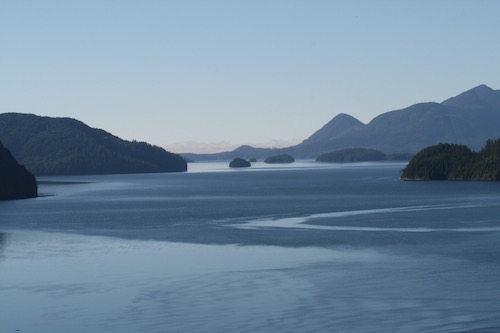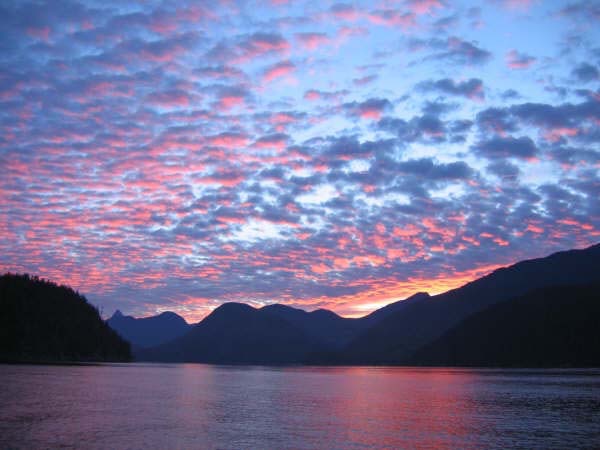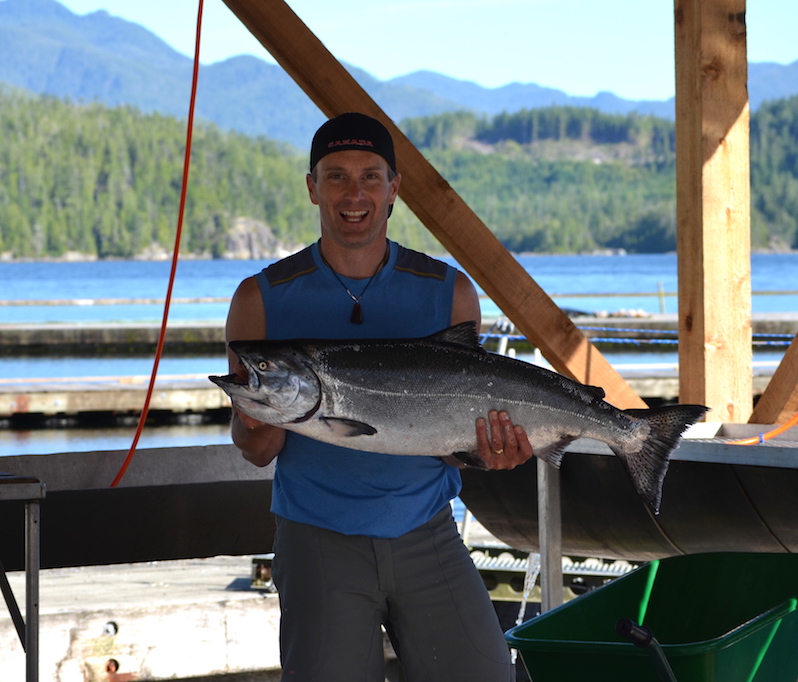Weather:


Here are links to a couple of sites we find useful for weather forecasting:
Gold River weather
Marine Forecast Estevan Point
Buoy Report
Web cam view of Muchalat Inlet Government dock in Gold River. You will be in this photo shortly after you launch your boat.
Tides:
If you’re using the Gold River boat launch, note the ramp is in the river and is affected by the tides. You’ll want to avoid the boat ramp any time there are less than 3 feet of water.

Fishing licenses:
Fishing licenses are only available online. You may buy the licenses well in advance and postdate them to coincide with your trip. We do have the capability to get online licenses at Critter Cove for you, but on occasion, we have internet or other technical difficulties – so please get your licenses before you come if possible.
Buy a saltwater fishing license.
Fishing Regulations:
Note, Nootka Sound is area 25 (or 125 offshore)
DFO
Fishing regulations Nootka Detail
Packaging your catch regulations
Halibut
Boat Storage in Gold River:
We are often asked about facilities to store boats in Gold River, both for winter and to save travel expenses for those guests who make more than one Nootka trip each summer. We manage a fenced storage area in Gold River, Gold River Storage, next door to the Tomic workshop at 518 Industrial Park Place. This yard is in Gold River, not at the boat ramp, so it’s not suitable if you’re headed out to Nootka and want to leave your vehicle at the boat ramp.
Summer short term yard boat storage is $10 a day ($40 minimum). There are also boat sheds available for the year starting at $60 a month plus GST, so $63.00. We encourage booking yard storage for July and August well in advance as it does fill up.
Garbage:
When planning your trip, please plan to reduce your waste, bring only what you’ll need, and take your garbage back home with you. We also bring everything in and out by boat – so we really appreciate it when as little possible is left behind.
Dogs:
Visiting pets are not welcome at Critter Cove. There is a Critter Cove dog, Freddy, who keeps the varmints at bay, but visiting pets are not allowed on the docks or in the rooms.
There is a highly qualified lady in Gold River, Karen Bowker who boards dogs in her house and yard (no kennel – free run of house and yard) in Gold River, so you can arrange a holiday for your dog while you’re at Critter Cove. Karen will even meet you at the boat launch to pick up pooch so you don’t need to navigate through Gold River towing your boat. If you search Facebook for Karen Bowker Gold River you may reach Karen to make arrangements.
Smoking:
There is no smoking on any docks or in any rooms at Critter Cove. Guests are welcome to smoke on their own boats. We’re a long way from the fire department, so we are extremely sensitive to fire hazards. No smoking applies to Vaping too, as staff can’t tell at a distance what the substance is. Although Cannabis is legal in Canada now, it’s not welcome at Critter Cove, so that should be done far away from camp.
Camp cookouts on your deck:
Gas barbecues and cookstoves are welcome – briquettes, smokers, gas campfires, and deep fryers are not. Since the decks and docks are made of wood and flammable floatation, we want to reduce the fire risk from cooking.
Jerry Can storage:
Gas storage anywhere but in your own boat is strictly forbidden. Not only is gas a fire hazard, but it also melts the floatation if spilled on it.

NO Feeding the Bears!
We’ve never had an incident with the bears – so let’s keep it that way. We often see them ambling along the beach. There’s no need to feed them because there is an abundance of seafood and berries for them. There are plenty of viewing opportunity without baiting the bears, so let’s not be foolish.
Generators:
Portable generators are not welcome.
There are power outlets in the Cottages, Beach Houses and Lodge rooms. There are outlets in the public washrooms for Cabin, Suite, & Moorage guests. If you need a device charged, we’re happy to charge items at the front desk for you.
Curfew:
Since most of our guests get up with the sun to go fishing, we ask that camp is quiet by 10. The power stays on all night – so it’s not “lights out”, but anything above quiet conversation is not welcome in consideration of fellow fishermen.
Fishing Techniques:
Trolling with down riggers is the most common way to fish for salmon here. Although many spots are 300 feet deep, most often people are fishing the top 60 feet of water. Over the years we’ve seen just about everything work for lures – so bring what you feel comfortable and most confident fishing with. Bait (anchovy and herring) spoons, plugs and hoochies are often used. We do have a variety of popular tackle in our little tackle store once you’re here.
Tomic:
Many of you know that the Forbes bought Tomic Lures in 2003 from Tom Moss who’s started making them in the 60’s. With the help of several talented lure makers, we make them in Gold River. So, Critter Cove is the official test tank for Tomic. If you have some favourite Tomic lures you’d like us to have for you at Critter Cove for your arrival, send a note to Catherine through the contact page and as long as we have enough notice to make them and find a ride from Gold River to Critter Cove, we’ll have them waiting for you when you arrive.
Chinook:
These trophy-sized salmon (also called Springs and Kings) are the main course in Nootka. They run from 8 pounds to 60 pounds locally. A Chinook over 30 pounds is called a Tyee. Critter Cove awards every guest who catches a salmon over 40 pounds with a red “Executive Club” hat and any salmon over 50 pounds with a blue “Presidents Club” hat. When you hear our fog horn that’s the signal that there’s a hat worthy salmon at the scales. Chinook are caught all year. The biggest Chinook are those returning to spawn, and they arrive mid-June through September.
Coho:
These are the jumpers that run from 5 pounds to 20 pounds. We’ve seen some coho well over 20 pounds as well. Coho can be caught in May and run right through until the end of September. The biggest Coho are caught later in August and September.
Pink, Chum and Sockeye:
The occasional Pink salmon (often called humpies) and Sockeye are caught. Chum (often called dog salmon) are more plentiful in September and October.
Halibut:
These monster bottom fish weigh from 20 to 200 pounds locally. The halibut regulations change each year and there are maximum size limits, so do check the regs before fishing for them. We have always advocated releasing halibut bigger than about 60 pounds as they are the breeding stock, and they’re not as good to eat as the smaller ones anyway. The best halibut fishing is in May and June, but they can be caught throughout the summer (regulations permitting of course).
Cod:
Lingcod, a variety of rock cod, and snapper are delicious bottom fish available on the outside waters beyond Friendly Cove.
Birds of Nootka:
Critter Cove’s winter site watchman Joe (our own Nootka Birdman) keeps an eye out for visiting birds. Here’s a list of the birds he’s identified so far:
